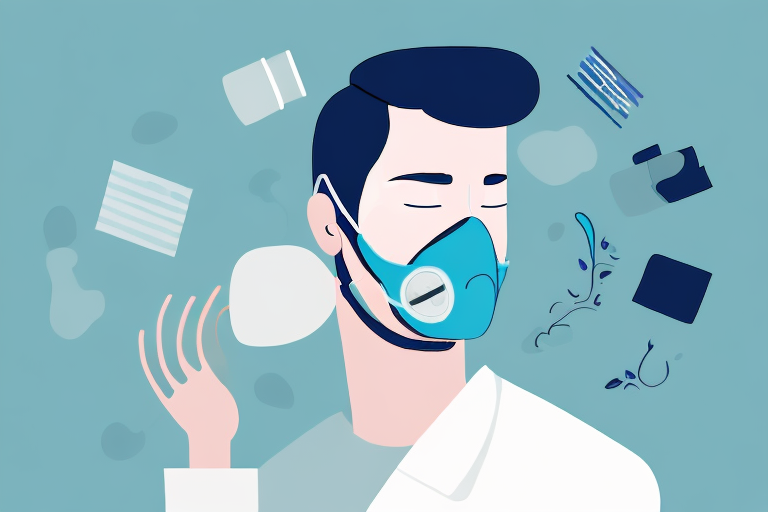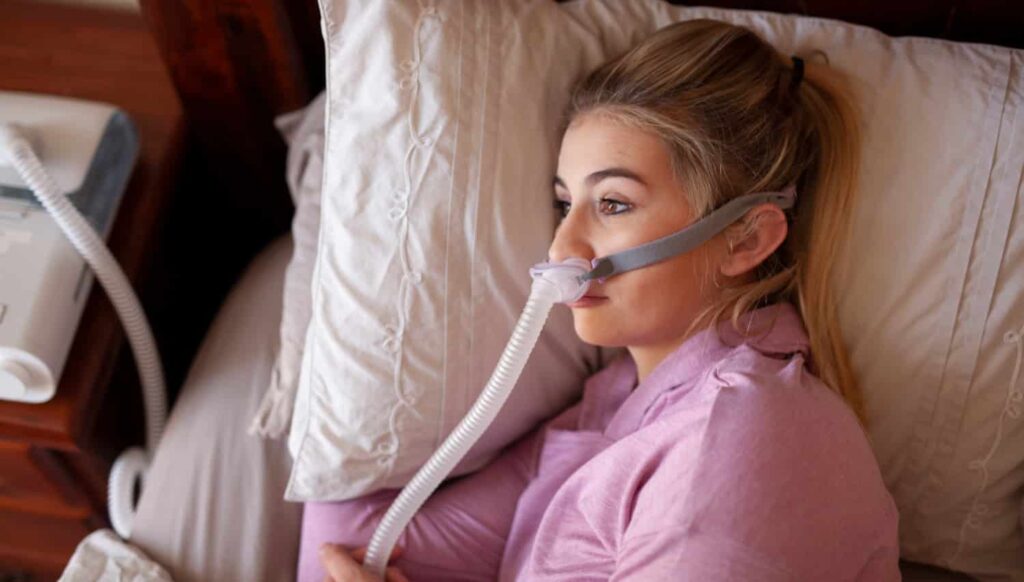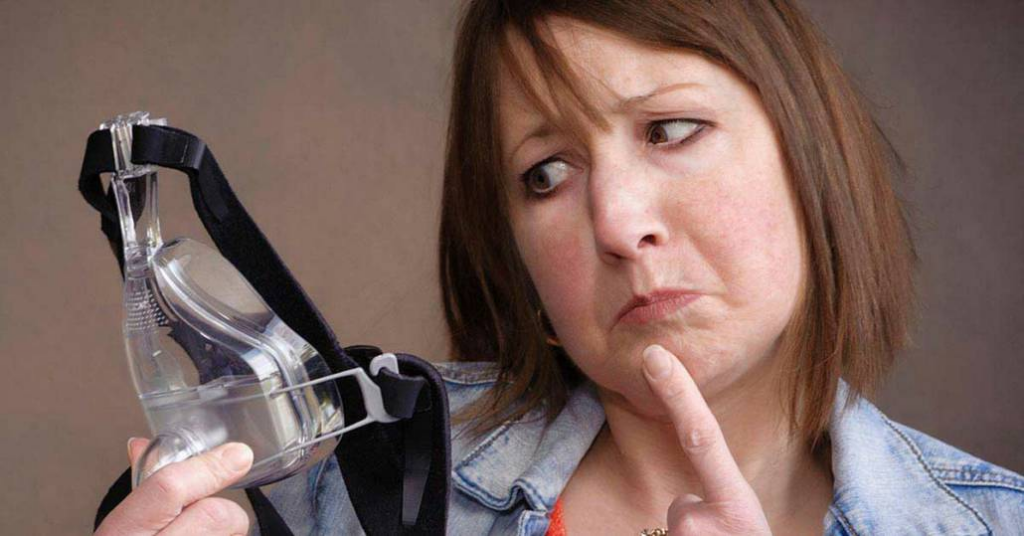A good night’s sleep is essential for maintaining a healthy lifestyle. For individuals with respiratory conditions, such as sleep apnea, finding effective solutions is crucial. One such solution is the use of Continuous Positive Airway Pressure (CPAP) therapy. CPAP masks play a vital role in this therapy, ensuring proper respiratory care and quality sleep.
In this article, we will explore the significance of well-fitted CPAP masks in respiratory care and how to buy cpap mask online and also the impact they can have on sleep solutions.
Understanding the Role of CPAP Masks in Respiratory Care
Sleep apnea is a sleep disorder that causes interruptions in breathing during sleep, leading to fatigue, daytime drowsiness, and other health complications. It affects millions of people worldwide and can have a significant impact on their quality of life. Fortunately, there are effective treatments available, and one of the most commonly prescribed therapies is CPAP (Continuous Positive Airway Pressure) therapy.
CPAP therapy involves the use of a CPAP machine that delivers pressurized air through a mask, providing a constant stream of air to the individual’s airways. This positive air pressure prevents the collapse of the airway walls, allowing the individual to breathe without disruptions. The CPAP machine can be adjusted to a specific pressure level based on the individual’s needs, ensuring effective treatment.

CPAP masks are an integral part of this therapy as they deliver a continuous flow of pressurized air to keep the airways open. These masks are designed to fit securely over the individual’s nose and mouth, creating a seal and effectively delivering pressurized air. They are available in various styles, including nasal masks, full face masks, and nasal pillow masks, catering to different preferences and needs.
Nasal masks cover only the nose, providing a comfortable and lightweight option for individuals who prefer a minimalistic design. Full face masks, on the other hand, cover both the nose and mouth, ensuring a secure seal and preventing air leaks. They are suitable for individuals who breathe through their mouth or experience nasal congestion. Nasal pillow masks are the smallest and most lightweight option, fitting directly into the nostrils and providing a more open and unrestricted field of vision.
By using a well-fitted CPAP mask, individuals can experience improved breathing during sleep, reducing episodes of apnea and maintaining normal oxygen levels. The masks are designed to be comfortable and minimize discomfort, allowing users to sleep peacefully throughout the night. They are made from soft materials that conform to the face’s contours, preventing skin irritation and pressure sores.
It is important for individuals using CPAP masks to regularly clean and maintain them to ensure optimal performance and hygiene. Most masks can be easily disassembled for cleaning, and manufacturers provide specific instructions on how to clean and care for each mask type. Regular cleaning not only prolongs the lifespan of the mask but also helps prevent the buildup of bacteria and allergens.
In addition to the physical benefits of CPAP therapy, it also has a positive impact on mental health and overall well-being. By effectively treating sleep apnea, CPAP therapy can improve daytime alertness, concentration, and mood. It can also reduce the risk of developing other health complications associated with untreated sleep apnea, such as high blood pressure, heart disease, and stroke.
In conclusion, CPAP masks play a crucial role in respiratory care by delivering pressurized air to keep the airways open during sleep. They come in various styles to cater to different preferences and needs, ensuring comfort and effectiveness. By using a well-fitted CPAP mask and adhering to regular cleaning and maintenance, individuals can experience improved breathing, better sleep quality, and overall enhanced well-being.
The Significance of a Well-Fitted CPAP Mask
A well-fitted CPAP mask is vital for maximizing the benefits of CPAP therapy. Ensuring comfort and efficacy are essential factors in achieving successful respiratory care and quality sleep.
CPAP therapy, or continuous positive airway pressure therapy, is a common treatment for sleep apnea. It involves wearing a mask that delivers a constant flow of air pressure to keep the airways open during sleep. While the therapy itself is highly effective, the success of the treatment greatly depends on the fit of the CPAP mask.
Ensuring Comfort and Efficiency
Comfort is crucial when it comes to wearing a CPAP mask. A well-fitted mask should not exert excessive pressure on the face, causing discomfort or skin irritation. It should fit snugly but comfortably, allowing individuals to sleep peacefully throughout the night.
One of the main reasons why comfort is important is because individuals with sleep apnea often struggle with sleep disturbances and daytime fatigue. The last thing they need is a mask that adds to their discomfort and prevents them from getting the restful sleep they desperately need.
Moreover, a comfortable mask contributes to better compliance with CPAP therapy, increasing the chances of successful respiratory care. When individuals find their mask comfortable to wear, they are more likely to use it consistently, ensuring that they receive the necessary air pressure to keep their airways open throughout the night.
Preventing Common CPAP Problems
Poorly fitted CPAP masks can lead to various issues that hinder optimal therapy. Air leaks, mask shifting, and loud noise are common problems individuals may encounter if their mask does not fit properly.
Air leaks occur when the mask does not create a proper seal against the face. This can result in a loss of air pressure, reducing the effectiveness of the therapy. It can also lead to dry eyes, nasal congestion, and a dry mouth, causing discomfort and further sleep disturbances.
Mask shifting is another problem that can occur when the mask is not well-fitted. As individuals move during sleep, the mask may shift out of place, leading to air leaks and disruptions in therapy. This constant adjustment can be frustrating and prevent individuals from achieving a restful night’s sleep.

In addition, a poorly fitted mask can produce loud noise, which can be disruptive to both the individual using the CPAP therapy and their sleep partner. This noise can make it difficult for individuals to fall asleep or stay asleep, negating the benefits of the therapy.
By ensuring a well-fitted mask, individuals can prevent these problems and experience seamless respiratory care, promoting quality sleep and overall well-being. A properly fitting mask creates a secure seal, minimizing air leaks and reducing the risk of mask shifting. It allows individuals to sleep soundly, knowing that they are receiving the optimal air pressure needed to keep their airways open and improve their sleep quality.
Selecting the Right CPAP Mask
Choosing the right CPAP mask is a crucial step in optimizing respiratory care. Several factors should be considered when selecting a mask that best suits an individual’s needs.
When it comes to selecting a CPAP mask, one of the most important factors to consider is facial features. Facial features, such as the shape of the nose, mouth, and facial structure, vary from person to person. It is important to consider these factors when selecting a CPAP mask. The right mask should fit securely and comfortably, accommodating individual characteristics for optimal therapy.
In addition to facial features, another factor to consider is personal preference. Some individuals may prefer a mask that covers only the nose, known as a nasal mask. This type of mask is a popular choice for individuals who breathe primarily through their nose. On the other hand, full face masks cover both the nose and mouth, making them a suitable option for individuals who breathe through their mouth or have difficulty breathing through their nose. Another option is the nasal pillow mask, which has small cushions that seal around the nostrils. This type of mask is lightweight and less intrusive, making it a preferred choice for individuals who feel claustrophobic with traditional masks.
It is important to explore the different mask options available and consult with healthcare professionals to determine the most suitable mask for individual respiratory care. Healthcare professionals can provide valuable guidance and recommendations based on an individual’s specific needs and preferences.
Furthermore, comfort plays a significant role in the selection process. A CPAP mask that is uncomfortable or ill-fitting can lead to difficulties in adhering to therapy. It is essential to find a mask that feels comfortable and does not cause any discomfort or pressure points on the face. Adjustable straps and cushioning can contribute to a better fit and overall comfort.
Another consideration is the maintenance and cleaning of the CPAP mask. Regular cleaning is necessary to ensure the mask remains hygienic and free from bacteria or allergens. Some masks have detachable parts that can be easily cleaned, while others may require more intricate cleaning procedures. It is important to choose a mask that is easy to clean and maintain to ensure optimal respiratory care.
Lastly, it is worth noting that selecting the right CPAP mask may require some trial and error. It may take time to find the perfect fit and comfort level. It is essential to be patient and persistent in the process, as finding the right mask can significantly improve the effectiveness of CPAP therapy and overall sleep quality.

The Process of Fitting a CPAP Mask
Ensuring a proper fit is essential for the effectiveness of a CPAP mask. There are two options for fitting a CPAP mask: professional fitting and self-fitting.
Professional Fitting vs. Self-Fitting
Healthcare professionals specializing in sleep disorders can provide expert advice and assistance in fitting CPAP masks. They can assess facial features, guide individuals in selecting the right mask, and make necessary adjustments to ensure a proper fit. However, self-fitting is also a common practice, especially for individuals who have experience with CPAP therapy and understand their specific needs. Proper resources and guidelines should be followed to achieve a suitable fit.
Tips for Achieving a Good Fit
Regardless of the fitting method chosen, there are general tips to ensure a good fit. Regular cleaning and maintenance of the mask, proper adjustment of straps, and following manufacturer guidelines are crucial steps in achieving an optimal fit. It is recommended to consult with healthcare professionals or CPAP equipment providers for additional guidance on maintaining a well-fitted CPAP mask.
The Impact of a Poorly Fitted CPAP Mask
A poorly fitted CPAP mask can have detrimental effects on respiratory care and sleep quality.
Potential Health Risks
If a mask does not fit properly, it may result in air leaks, which compromises the efficacy of CPAP therapy. Inadequate therapy can lead to persistent fatigue, reduced mental alertness, and increased health risks associated with untreated sleep apnea. It is imperative to address fitting issues promptly to avoid potential health complications.
Impact on Sleep Quality
A poorly fitted CPAP mask can disrupt sleep, leaving individuals unable to attain restful and rejuvenating sleep. The discomfort caused by an ill-fitting mask can result in frequent awakenings and difficulty falling back asleep. By prioritizing a well-fitted mask, individuals can ensure uninterrupted sleep, allowing them to benefit fully from CPAP therapy and improve their overall sleep quality.In conclusion, the importance of well-fitted CPAP masks in respiratory care cannot be overstated. These masks play a crucial role in CPAP therapy, delivering pressurized air to keep airways open and maintain regular breathing patterns during sleep. By understanding the role of CPAP masks, selecting the right mask, and ensuring a proper fit through professional fitting or self-fitting, individuals can achieve optimal respiratory care and quality sleep. Taking the necessary steps to ensure a well-fitted mask can have a profound impact on sleep solutions for individuals with respiratory conditions. So, prioritize the importance of well-fitted CPAP masks in respiratory care, and embark on a journey to better sleep and improved overall well-being.
More to read: The Benefits of Advanced Technology in Cataract Surgery

